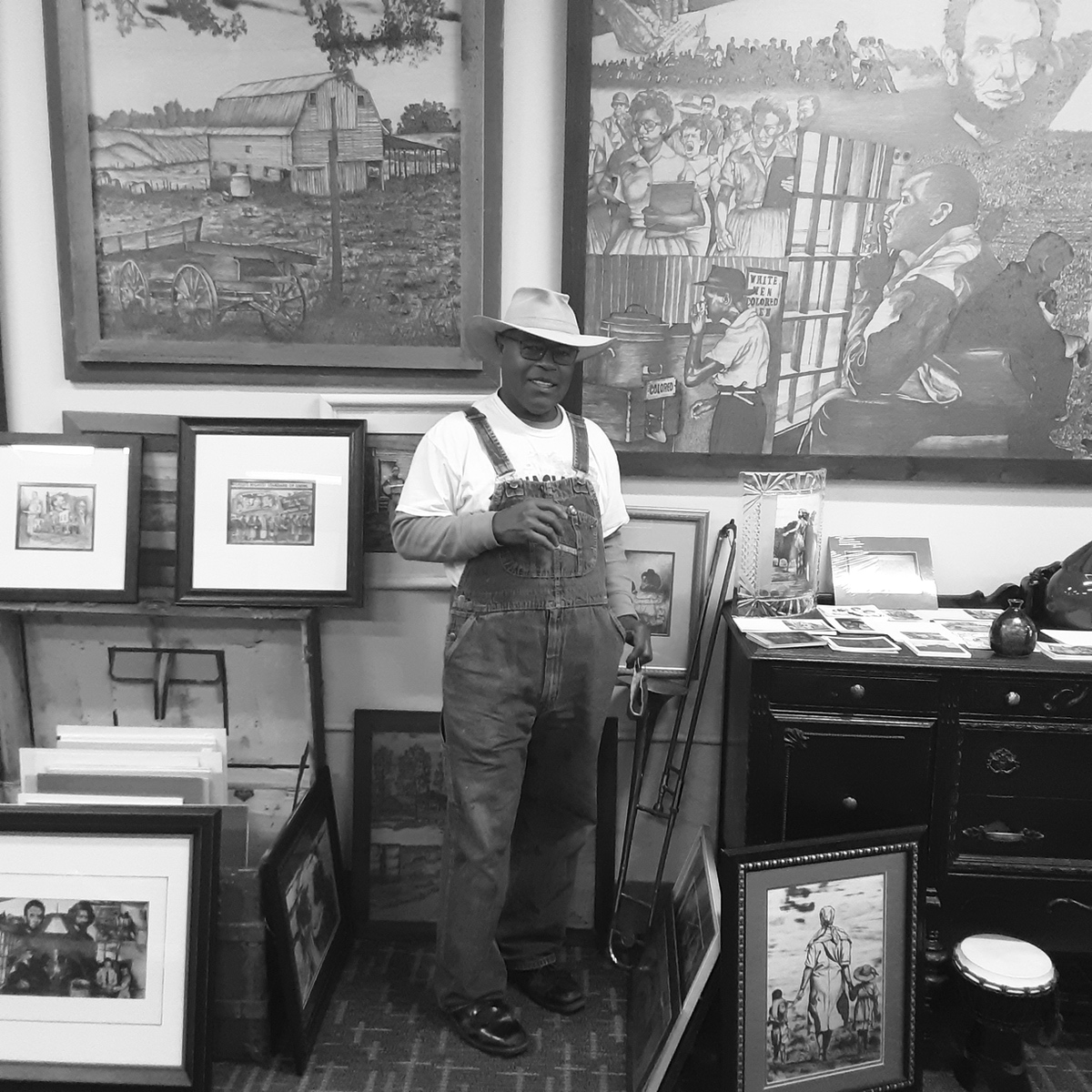One of the special pleasures in life is checking off item by item on your bucket list.
I’ve been lucky to live long enough and to travel extensively enough to wear my bucket-list pencil nub down quite a bit. Notre Dame Cathedral, The Louvre, Sydney Opera House, Brandenburg Gate—the list has narrowed quite a bit since I was a young, wonder-eyed boy.
Many items were closer to home, but no less important to me: Arlington National Cemetery, Gateway Arch, Mammoth Cave, Smithsonian Museums and more.

OLarry Collins.
But time, of course, is the enemy to bucket lists: So many items, so little time. And even if you could live forever, you could never check off an item that time had already erased before you got the chance to visit it.
I have always felt that way about my favorite music, American blues. Check out my CD’s, cassette tapes and vinyl records, and you’ll find that almost all are of American blues artists: Muddy Waters, BB King, Howlin’ Wolf, Robert Johnson. You’ll find plenty who are less well-known: Hound Dog Taylor, Slim Harpo, Sonny Terry, Sonny Boy Williamson.
But if, like me, you wanted to add American blues to your bucket list of places to visit, where would you go? I mean the real, original, gut-bucket, juke-joint blues places all those guys put on the map.
They’re all gone.
Oh, there are plenty of great modern clubs that play the blues, and you don’t have to travel all that far to check them off the list. Buddy Guy’s Legends in Chicago is a great one, though a bit touristy. Rosa’s Lounge on the north side is even better, and closer to the real thing.
But the real Mississippi Delta juke joints that gave birth to guys like Muddy Waters? Sorry. They’re all gone, tumbled down when the blues guys headed north 80 years ago.
Still, if you’re lucky, even though you can’t go visit some items on your bucket list, sometimes your bucket list items find a way to come visit you.
A bit of that happened to me last summer, when I was invited to get up on stage and play harmonica along with Mojo Morganfield and Greg Guy, sons of Muddy Waters and Buddy Guy, respectively. Granted, they are a generation removed from the original source of American blues, but still.
And last week, I got the chance to visit another blues legend of a different sort, a man who is even closer to the original source.
I first learned of OLarry Collins two years ago, when my friend Carol ran into him in the little town of Dowagiac, Michigan, and she knew immediately that he would be on my bucket list.
OLarry was born in the 1940’s in Rolling Fork, Mississippi, at a place and time when all the original American bluesmen were just beginning to ply their trades. Rolling Fork is in the heart of the Delta, the spawning ground of the blues, not far from Clarksdale, where Muddy Waters grew up. And because OLarry’s parents ran juke joints, OLarry grew up with the sound of original American Delta blues in his ears almost every night as he lay in bed.
But Rolling Fork is in Sharkey County, listed as the poorest county in the United States, so Larry—like Muddy Waters and so many other great bluesmen—rode the rails north and ended up in Chicago. Later, he moved to Dowagiac, Michigan, where he lives today.
Larry never became a musician, but the blues were in his soul from the very beginning, and when as a child he picked up a burned board and saw what appeared to be the image of a deer, perfectly etched by fire into the plank, he wondered if he could find a way to make art with his own hands.
His family couldn’t afford paints and canvases, but there was plenty of old wood lying around, and his father had a soldering iron, so OLarry went to work, burning images onto the wood. And his favorite subjects were the old bluesmen whose music he fell asleep to every night as a child.
Over time he expanded his subjects to include scenes from history, many of which he witnessed firsthand—like “Whites only” water fountains—or important American heroes like Abraham Lincoln, Martin Luther King and Barack Obama. It is astounding to see his images come to life, born of nothing more than fire and wood—and, of course, artistic brilliance paired with a gentle, caring heart.
That is why, when Carol and I hit the road to take a “fall colors” drive through southern Michigan last week, I knew we had to visit Dowagiac and see OLarry.
It felt a bit like a bucket list trip.
And today, with an original OLarry Collins blues music artwork hanging on my wall that brings me more joy than any photo of Notre Dame ever could, my bucket-list pencil nub is worn just a bit shorter than it was.
Author, musician and storyteller TR Kerth is a retired teacher who has lived in Sun City Huntley since 2003. Contact him at trkerth@yahoo.com. Can’t wait for your next visit to Planet Kerth? Then get TR’s book, “Revenge of the Sardines,” available from Amazon, Barnes & Noble, and other online book distributors.




